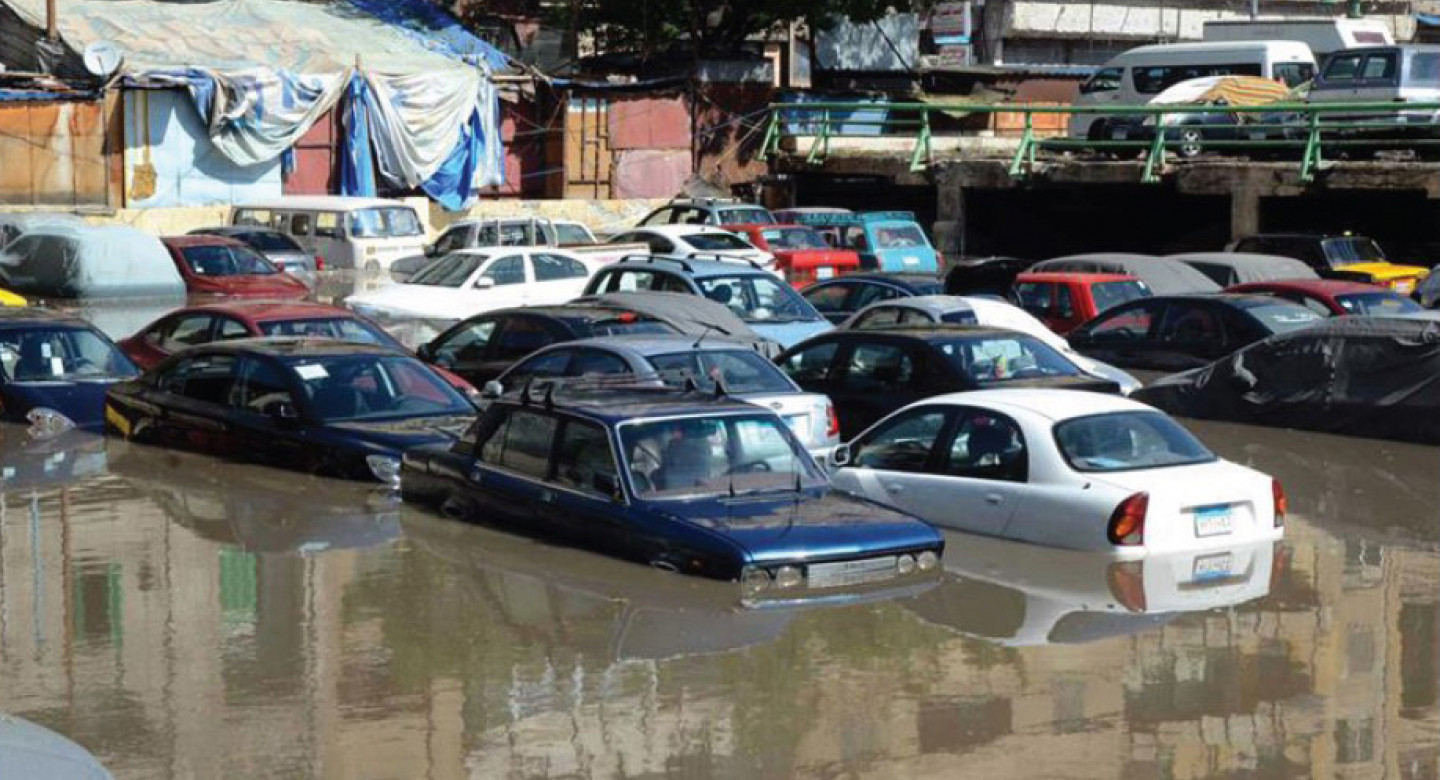

Alexandria’s early warning flood system
Ninety percent of all the world’s disasters are water related. Climate change is causing extreme weather events, rising sea levels and storm surges which can lead to severe flooding and loss of life. As a low-lying delta, the Netherlands has developed expertise which it can share with its international partners to build back better. By involving communities in secure data-driven solutions, local residents become empowered to use and share their local knowledge with international experts, who can then help them predict flood events.
In 2015, Egypt’s second-largest city Alexandria experienced exceptionally severe rainfall, leading to the largest flood in recent memory. To prevent this from ever happening again, the authorities called in support from the Netherlands IHE Delft Institute for Water Education. This cooperation resulted in the launch of the Anticipatory Flood Management in Alexandria (AFMA) project, a public-private partnership involving Dutch and Egyptian parties.
Weathering climate change together
Many countries in the MENA region suffer from occasional and unpredictable flooding, and Alexandria is one of the cities affected worst. In autumn 2015, the flash flood caught Alexandria by surprise and the city was ill-prepared. Water channels intended to discharge water were full of rubbish and traditional flood plains were occupied by slums.
As a result of climate change, flooding is expected to occur more frequently. To better prepare the city against floods, Dutch and Egyptian NGOs, technical companies, knowledge institutions and the local authorities came together to implement one of the first urban anticipatory water management systems in a developing country.
Water safety and security
The AFMA project focused on both long-term and short-term solutions for Alexandria’s flooding problem. Addressing short-term problems first, the project team developed a low-budget early-warning system along with evacuation and recovery plans. After that, they turned to long-term solutions, such as increasing Alexandria’s drainage capacity and flood mitigation and protection works.
The Netherlands supports the project through the Sustainable Water Fund (SWF), which was established to promote cooperation between private and public bodies in the water sector. Through the SWF, the Netherlands aims to contribute to water safety and security in developing countries in collaboration with local partners.
Involving local residents
AFMA goes beyond just solving Alexandria’s flooding problem. By giving the poorest residents an important role in tackling the city’s water issues, the project also tries to stimulate self-reliance and resilience, while reducing their poverty. 500 ‘water ambassadors’, half of them women, were trained to increase water and flood risk awareness. Equipped with mobile phones they collect rainfall and flood data, which can then immediately be used by the project team to model whether a flood is likely to happen. If that is the case, water can be redirected to lakes outside Alexandria.
Beyond Alexandria
Alexandria is one of many cities in the region badly affected by climate change. The AFMA project "is a unique project for Egypt and the lessons learned will be transferred to all cities at risk from flooding throughout the country", says Prof. Dr. Wahaab, IHE Delft alumnus and National Coordinator of the AFMA project. He is one of the many local students and engineers involved in the project trained at IHE Delft. In the future, they can apply the knowledge acquired elsewhere as well, so that other cities can also switch from responding to floods to anticipating them and take water management measures well in advance.